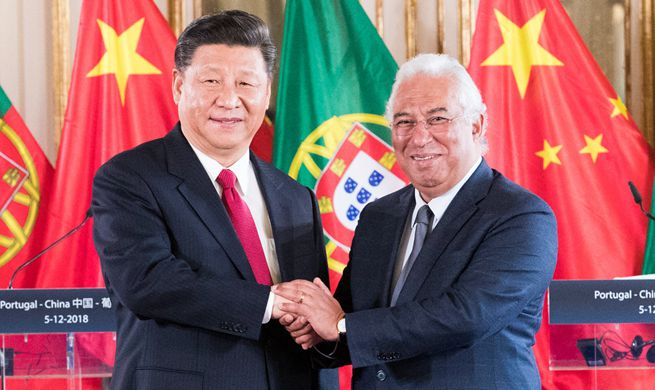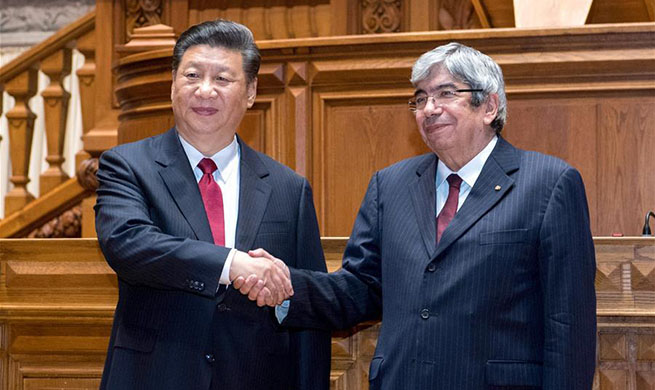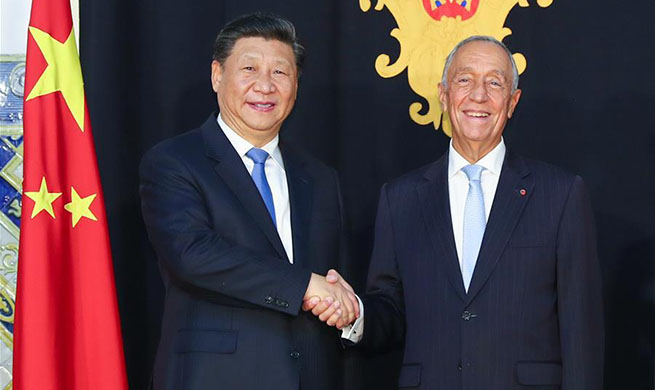ISLAMABAD, Dec. 7 (Xinhua) -- Wasif Ali, an undergraduate engineering student in a private university in Islamabad, made up his mind to learn Chinese language after watching the inauguration ceremony of a power plant constructed under China Pakistan Economic Corridor (CPEC) on TV.
"I realized that language barrier is a big hindrance between Pakistanis and Chinese as most of the Chinese speakers at the ceremony were communicating with the audience through an interpreter," Ali, who aspires to work for CPEC projects, told Xinhua that he wants to overcome the communication hindrance by learning Chinese language.
The 20-year-old feels that currently there are not many jobs for engineers in Pakistan and fresh engineers face many challenges to get employment in reputed companies, so he wants to be in competition by learning Chinese language as thousands more jobs are expected to be created under the CPEC scheme.
Deputy mission chief of China's embassy in Pakistan Zhao Lijian recently said in a ceremony that the China-proposed Belt and Road Initiative has helped generating 200,000 jobs out of which 75,000 were created in Pakistan through the CPEC.
Senator Mushahid Hussain Syed, chairman of Islamabad-based think-tank Pakistan China Institute, told Xinhua that the number of Chinese language students in Pakistan has been rapidly increasing since the commencement of the CPEC.
"A few years ago, only around 2,000 people in Pakistan were learning Chinese language, and now the number surpasses 25,000. The language is becoming popular, people are paying attention to it."
He said that many universities in Pakistan have made Chinese language a mandatory subject for students pursuing their graduation degree, and a number of institutes in all provinces of the country are offering Chinese language classes.
Syed said that the country's young generation is cognizant of the fact that its future in associated with CPEC, so it wants to avail maximum opportunities by overcoming the language barrier.
Talking about the rising trend of Chinese language in Pakistan, Syed Hasan Javed, Director of Chinese Studies, School of Social Sciences and Humanities, National University of Science and Technology (NUST) Islamabad, said that many young parents in major cities are keen to make their children learn Chinese language.
He said that his institute is teaching Chinese language to graduation students "to duly equip them for the future."
"Chinese companies are becoming global and are offering more and more job opportunities, so our youngsters must have knowledge of China and Chinese language to learn how the country became an economic power from a third world country."
Chinese language learning is not only limited to students, but it is taking the form of a new "trend" in Pakistan and many working women and men are learning the language as the third language, after local language Urdu and English.
Some universities have also introduced Chinese language classes for faculty members where they can sit in class with their students to learn the language from Chinese teachers.
Attiya Ishaq, a student of a private university in Islamabad said that sometimes it feels odd when their teachers sit together on student benches with them in Chinese language class, but at the same time it is very interesting too.
"In the Chinese language class, our teachers are our classmates and I would not hesitate to say that students are doing way better in the class than teachers," Ishaq told Xinhua.
In a conversation with Xinhua, Yasir Masood, an analyst with an Islamabad-based think-tank on the CPEC, said that Chinese language learning is very important because it is one of the main components of the whole concept of the Belt and Road Initiative.
"When we talk about connectivity it is not just about the roads or infrastructure, but also cultural connectivity which brings the two nations together."
"Everyone knows that China is on the rise and the time is not far when Chinese language will become as important as English. So in order to learn the norms, the values and the traditions of Chinese, learning their language is imperative and pivotal."
Analysts believe that learning of Chinese language by Pakistani people is more than just finding job opportunities to get material benefits.

















